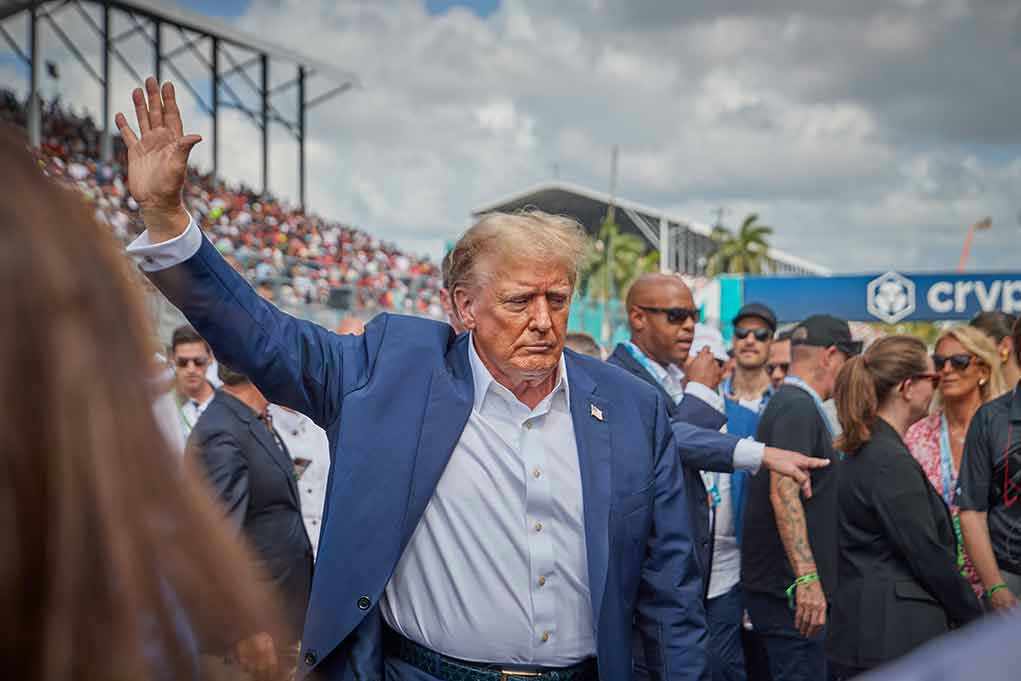
Seven nations have shocked the global establishment by nominating President Trump for the Nobel Peace Prize, challenging the credibility of past politically motivated awards and putting Trump’s diplomatic victories front and center.
Story Snapshot
- Seven countries formally nominate Trump for the 2025 Nobel Peace Prize, crediting his direct role in brokering major peace agreements.
- International debate intensifies over the Nobel’s political neutrality and the motivations behind Trump’s unprecedented multi-nation endorsement.
- Past left-leaning laureates, including Obama, face new scrutiny as Trump’s diplomatic record is compared to prior controversial winners.
- The Nobel Committee maintains secrecy, leaving the legitimacy and impact of these publicized nominations under the spotlight.
Trump’s Global Recognition for Peace Initiatives
In a historic first, seven countries—Armenia, Azerbaijan, Cambodia, Gabon, Israel, Pakistan, and Rwanda—have publicly nominated Donald Trump for the 2025 Nobel Peace Prize. These nations point to Trump’s hands-on diplomacy in resolving entrenched conflicts, from the Armenia-Azerbaijan standoff over Nagorno-Karabakh to the Cambodia-Thailand border crisis and hostilities in Central Africa. The coordinated nominations underline the global respect for Trump’s approach, a stark contrast to past years when peace prizes often seemed politically motivated or prematurely awarded to leftist leaders.
Supporters of Trump’s nomination emphasize the concrete results of his foreign policy, which prioritized American interests and regional stability over empty rhetoric. Unlike previous administrations that leaned on endless negotiations and globalist talking points, Trump delivered actual ceasefires and peace agreements. Israeli Prime Minister Netanyahu, who submitted one of the nominations, credited Trump’s intervention as pivotal for regional security. The move has reignited debate over what constitutes genuine peacemaking—and whether the Nobel Peace Prize is finally returning to its original purpose of recognizing real, lasting achievements.
Political Controversy Surrounds the Nobel Nominations
The flurry of nominations has not come without controversy. Critics and media skeptics, many with a record of supporting leftist policies, question the motivations behind the endorsements. Some allege that these nations seek to curry favor with the United States rather than reward substantive progress. However, such criticisms echo the same doubts raised when Barack Obama received the Nobel in 2009, just months after taking office with little to show in terms of actual peace deals. This new wave of nominations exposes the double standard and politicization that has plagued the Nobel in recent decades, as Trump’s diplomatic interventions led to concrete outcomes where previous laureates often fell short.
The Nobel Committee, which has historically operated under strict secrecy, reiterated its policy of not confirming or denying nominees. Official lists remain sealed for 50 years, so this unprecedented publicity comes from the nations themselves—underscoring both the global impact of Trump’s actions and the fractured trust in legacy institutions. The committee now faces mounting pressure to restore the Nobel’s reputation by making its standards clear and avoiding political gamesmanship that undermines its original intent.
Expert Analysis: Restoring the Nobel’s Integrity or Deepening Division?
Analysts are sharply divided. Advocates for Trump cite his “peace through strength” approach, delivering tangible agreements that reduced conflict and improved security in volatile regions. They argue that, unlike previous winners criticized for symbolic gestures or unattainable promises, Trump’s record stands on actual diplomatic breakthroughs. Conversely, some experts caution that lasting peace requires sustained implementation, and warn that publicized nominations may reflect political maneuvering as much as genuine progress. The debate has reignited questions about whether the Nobel Peace Prize serves as a tool for international politics or remains a true recognition of peacebuilding.
The impact of these nominations extends beyond Trump’s personal legacy. For millions living in Armenia, Azerbaijan, Cambodia, Rwanda, and beyond, these peace agreements offer hope for stability and economic growth. At the same time, the global spotlight on Trump’s achievements forces the Nobel Committee to confront its credibility crisis—potentially shifting the award’s future direction away from symbolic politics and back toward honoring substantive, values-driven leadership that puts actions and results first.
The world now waits for the October 10, 2025, announcement, as the debate over Trump’s candidacy exposes deep divisions—not just between nations, but in the very standards by which international institutions measure leadership, peace, and genuine progress.
Sources:
The Hilltop Online: What Trump’s Nobel Nominations Say About the Peace Prize
Le Monde: Donald Trump’s Obsession with the Nobel Peace Prize
Nobel Prize official site: Nomination and Selection of Peace Prize Laureates
Nobel Peace Prize official press release: Nominations for the Nobel Peace Prize 2025
Wikipedia: 2025 Nobel Peace Prize




